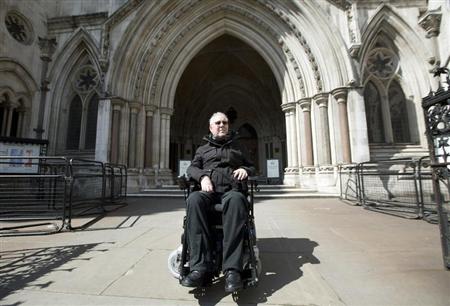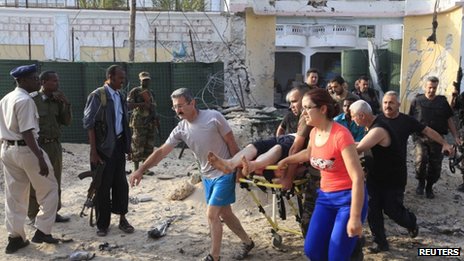by Tony Iozzo
Impunity Watch Reporter, Europe
LONDON, England – A British Court of Appeal upheld a ruling on Wednesday that the country’s law on assisted suicide cannot be changed by the courts, which quashed an appeal by a paralyzed man named Paul Lamb, and the family of the late Tony Nicklinson.

The Lord Chief Justice, sitting with the Master of the Rolls Lord Dyson and Lord Justice Elias, affirming a High Court ruling, rejected the Nicklinsons’ and Mr. Lamb’s right-to-die challenges.
The Lord Chief Justice stated Parliament represented the “conscience of the nation” as applied to life and death matters, such as capital punishment and abortion.
The late Tony Nicklinson suffered from locked-in syndrome, where an individual is aware and awake but is paralyzed and cannot communicate. Mr. Nicklinson passed away in 2012 after refusing food following the initial High Court decision to reject his right-to-die claim
“We will carry on with the case for as long as we can so that others who find themselves in a position similar to Tony don’t have to suffer as he did. Nobody deserves such cruelty,” stated Nicklinson’s widow, Jane.
Paul Lamb, 57, who has been paralyzed from the neck down after a car accident 23 years ago, joined the right-to-die cause shortly after Nicklinson’s death. Lamb stated he is in constant pain, and has to be injected with drugs, including morphine, on a consistent basis due to his spinal injuries.
“I was hoping for a humane and dignified end- this judgment does not give me that,” Lamb stated.
Lamb and the Nicklinson family stated they will now take their case to Britain’s Supreme Court, and the European Court of Human Rights if necessary.
“I am doing this for myself as and when I need it. I’m doing it for thousands of other people living what can only be described as hell. Many of them have been getting in touch with me begging me to continue this fight. The more it goes on the stronger I am getting,” Lamb stated.
As the law stands currently in Britain, anyone who aids another individual in killing themselves commits an offense of assisted suicide, while a person who carries out euthanasia commits murder.
In a separate case on Wednesday, however, the Judges ruled that another locked-in syndrome sufferer should be allowed to take his case to the Supreme Court. The man is seeking clarification of whether a medical professional would face trial if they helped him travel abroad to a Swiss suicide clinic.
For more information, please see:
BBC News – Right-to-Die Campaigners Nicklinson and Lamb Lose Battle – 31 July 2013
The Independent – Barbaric and Inhumane: Paralyzed Man Paul Lamb Hit Back After Judges Dismiss His Right to Die Appeal – 31 July 2013
The Telegraph – Right-to-Die: Laws Must Clarify Whether Doctors Can Aid Euthanasia – 31 July 2013
Yahoo News – British Court Dismisses Landmark Right-to-Die Appeal – 31 July 2013


